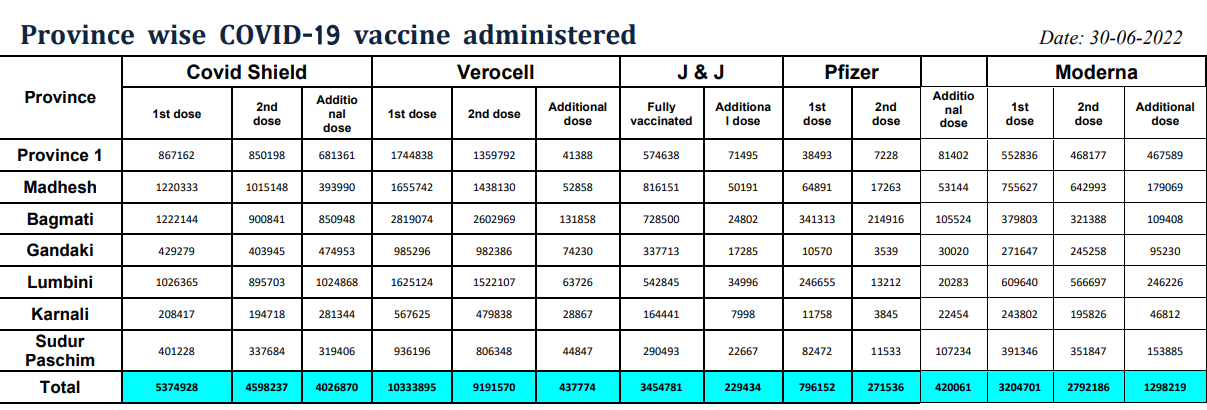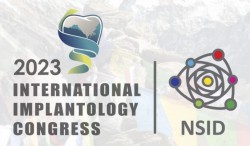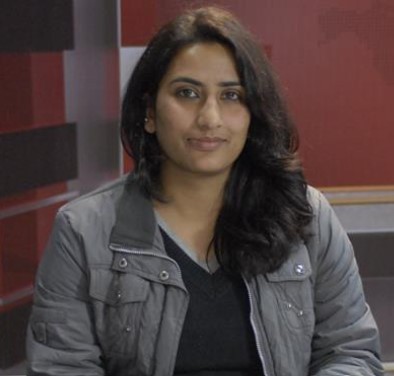Life & Health
-min1656589924.jpg)
Last week of June 2022. Kathmandu.
School children were moving forward in a line. Just that they were a bit more fidgety than usual. Teachers were with them, showing a rare capacity for caring.
“Come, sit,” they would shepherd the child in front of the line to a small chair on the ground.
It was Safin Karki’s turn now.
“My heart started beating fast,” the eight-year-old child said. “I was afraid to take the shot.”
On the chair, each child would hear something like this from a teacher or another: “Don’t look at the syringe, not when it is piercing through the vial of vaccine.”
Waiting with neck wriggled right for a jab against Covid-19 on the left shoulder, children would do what they could to keep their fear away -- close their eyes. Their bolder peers in the line behind would be folding up their shirt sleeves to show off their biceps. Others would fidget with their vaccination cards.
“I am not scared anymore,” Karki said, pressing up on his left shoulder with a medicated cotton ball after taking the vaccine.
Such scenes and comments have been common in schools these days since the government started administering coronavirus vaccines to children between five and 11 years. This was the first phase of the campaign in 27 districts, starting from June 23.
The first phase planned to vaccinate 37,00,000 kids in that age group with Pfizer-BioNTech Covid vaccines. This is the only vaccine recommended by the World Health Organization for use in children as of now. There are two types of Pfizer-BioNTech Covid vaccines for children -- one is given to those between five and 11 years and another for those aged 12 and above.
“I took the vaccine to keep myself safe from the coronavirus infection,” said Abhimanyu Das, another eight-year-old, after taking the first shot of the vaccine.
The Ministry of Health and Population has requested people to take their children to the nearest school or health centre for vaccination. It has said that the vaccines are safe and should be taken in prescribed doses.
-min1656589891.jpg)
“Let us protect the children from coronavirus infection,” said Sagar Dahal, chief, National Immunisation Programme, Family Welfare Division, under the Ministry of Health and Population. “The vaccines prevent severe disease, hospitalisation, or death of children.”
Vaccines are said to have been effective in averting potentially serious consequences from Covid-19 infections for all age groups. “Getting vaccinated helps to end the pandemic and stop new variants emerging,” the World Health Organization recommends.
“Vaccines create antibodies in people to fight the virus if they are later exposed to it,” said Dr Baburam Marasini, former director at Epidemiology and Disease Control Division.
According to the Ministry of Health and Population, 11,952 people have succumbed to the infection till June 30 of which 51 are children aged 0-9 and 57 adolescents and teenagers aged 10-19.
“There is also some evidence that being vaccinated will make it less likely that you will pass the virus on to others, which means your decision to get the vaccine also protects those around you,” the WHO has said.
As of June 27, 78.4 per cent of the total population had got at least the first dose of the vaccine in Nepal.

The health ministry has aimed to inoculate 98.2 per cent of the population with the first dose of the vaccine and 86.8 per cent with complete doses at its earliest.
Nepal so far has received 533,815,70 doses of Covid vaccines of various brands-- Astrazeneca, Vero Cell, Moderna, Janssen, Sinovac, and Pfizer-BioNtech (including paediatric doses) till June 17.
Covid-19 vaccination drive began in Nepal in January 2021. Health and Sanitation workers deployed in the frontline were the first to receive the vaccines in the campaign. Nepal government had started inoculating children above 12 years of age and teenagers below 18 using Pfizer vaccine in the country from November 2021.
The first case of the coronavirus was confirmed in Nepal in a 32-year-old Nepali student who had returned to the country from Wuhan, a Chinese city where the disease is believed to have first originated.
Since the detection of the virus in the country 9,79,694 people have tested positive of the infection in the polymerase chain reaction test till June 30.
The number of coronavirus cases has been rising in Nepal over the last few weeks. A total of 41 new cases – 36 on PCR and five on antigen test were reported to have tested positive of the infection.
“We request people to take all prescribed doses of the vaccine as it saves people from severe harm from the infection,” said Dr Samir Kumar Adhikari, Assistant Spokesperson at the Ministry of Health and Population.
Yet, some people are still hesitant to take the vaccine. To them, the health ministry has assured that the vaccines are necessary and safe.
On vaccination, some people might experience pain, redness or swelling where the shot was given, or fever, fatigue, headache, muscle pain, chills, joint pain, nausea and vomiting.
“They are very common. People should not be afraid of these symptoms,” said Dahal.
Doctors said even after being vaccinated, some people might catch coronavirus and spread it to others.
“Therefore, we must keep a safe distance from others, avoid crowds, wear masks, wash hands or use sanitisers, cover coughs and sneezes, even if we have had the vaccines,” said Dr Adhikari.

_11zon1681280198.jpg)




